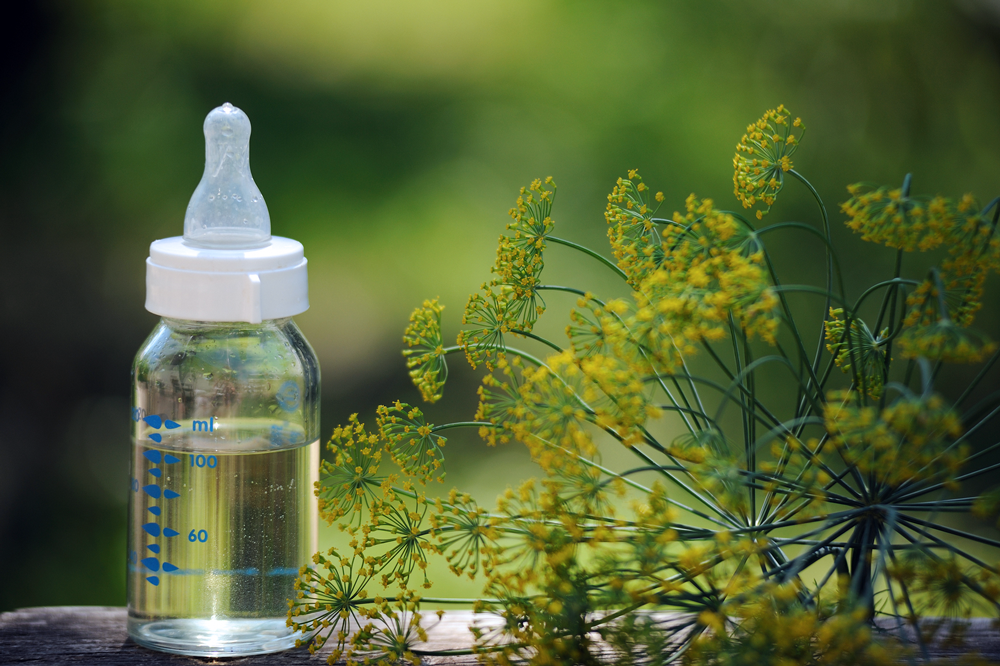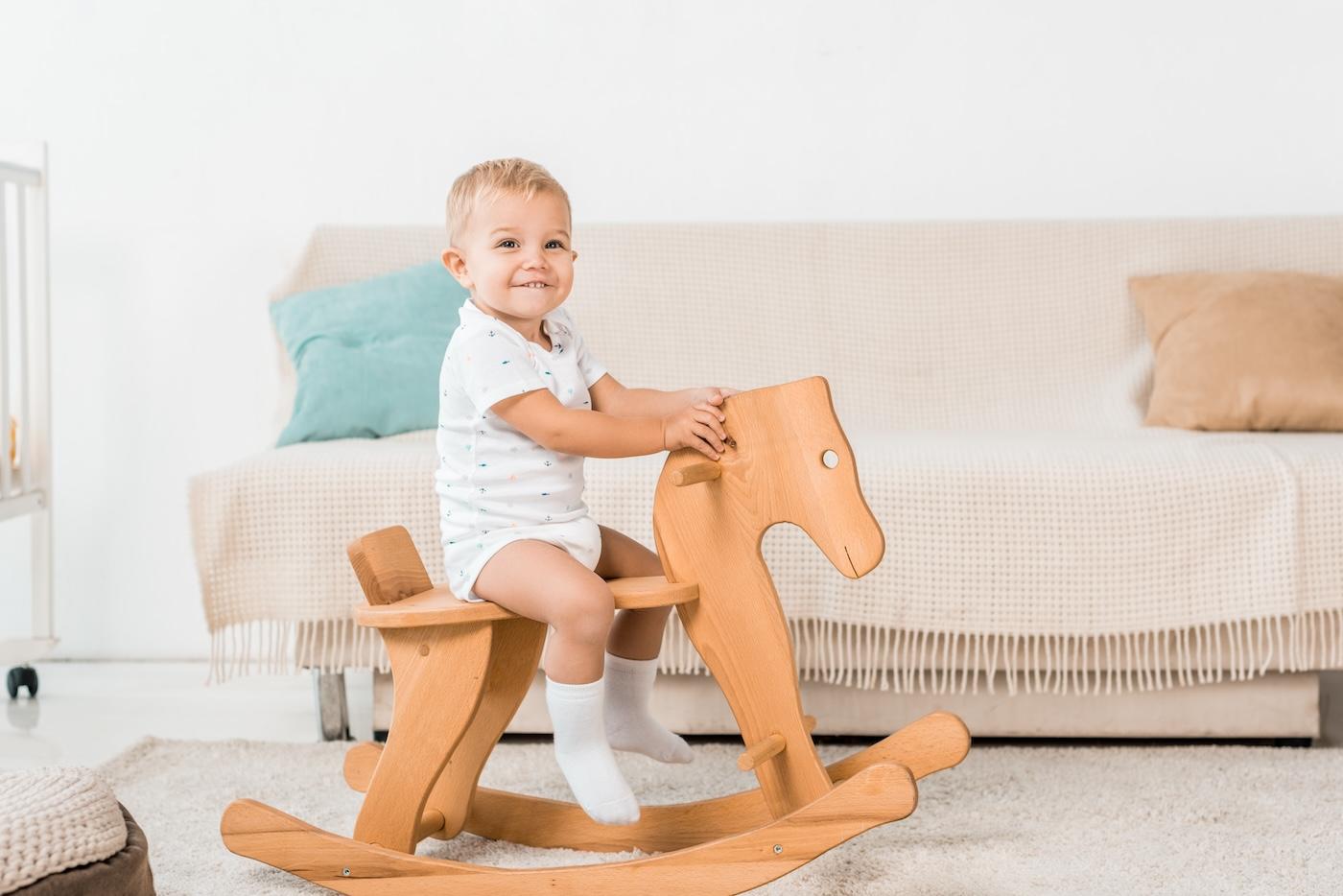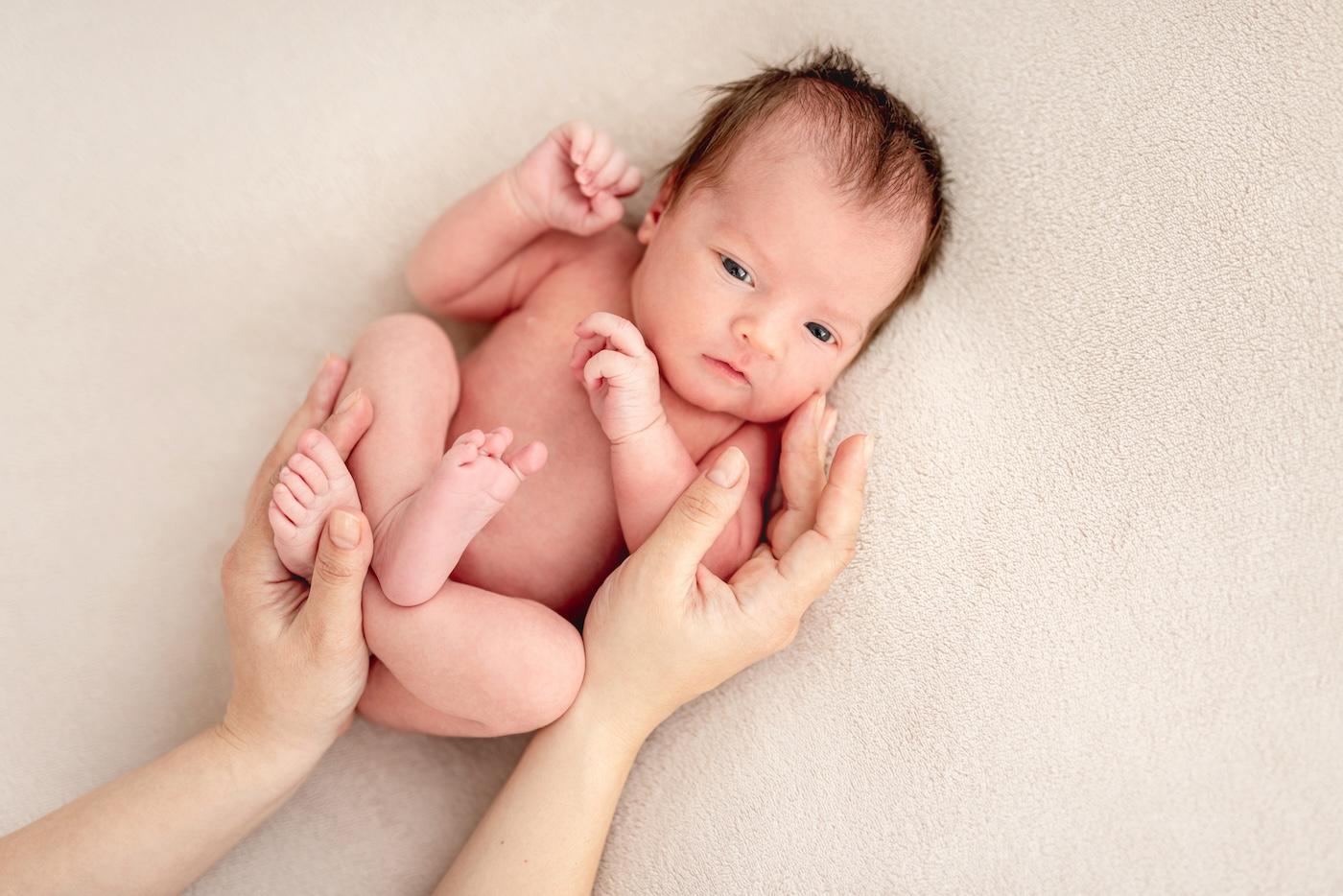BABY
Chamomile Tea & Other Herbal Teas for Babies
Tips on using tea for calming and digestion.

Written by
Dr. Harvey Karp

Chamomile Tea for Babies
Through the ages, teas to aid digestion have been recommended for unhappy babies.
So, is chamomile tea safe for babies? Yes. Traditionally, mothers brewed chamomile tea for babies—as well as peppermint, fennel, or dill teas—to help upset tiny tummies.
The ancient roots of this practice are reflected in the names that different cultures have chosen for these herbs. In Spanish, peppermint is called yerba buena, meaning the “good grass”; in Serbian it is nana, meaning “grandmother.” Dill was used to settle stomachs in ancient Egypt and Greece, and in Viking times. Its English name derives from the Old Norse word dilla, meaning “to soothe or calm.”
Chamomile Tea for Babies
Chamomile tea for babies is said to have calming properties; peppermint may ease intestinal spasms; dill helps soothe gas; and fennel has been reported to dilate intestinal blood vessels, perhaps facilitating digestion.
Interestingly, some studies have shown a lessening in crying after fussy babies are given herbs. An Israeli report found a tea containing chamomile, fennel, vervain, licorice, and balm mint lessened fussing more than a placebo. And an Italian study found that drops of chamomile, fennel, and lemon balm extract had some benefit.
Trying Herbal Teas for Babies
In general, I prefer not giving babies any oral supplements or remedies, but if you want to give baby tea a try, here is how:
How to Give Chamomile and Other Herbal Teas to your Baby
- Prepare a dill tea or a fennel tea for babies first by crushing some seeds between two spoons or put some in a small bag and mash them a few times with the bottom of a heavy mug.
- Then, place two teaspoons of the broken seeds in a cup of boiling water. Let it steep for 10 minutes
- Then strain it and let it cool.
- Offer your baby a teaspoon of this tea several times a day.
Dill is also found in “gripe water,” a folk remedy for colic that can be found in stores in the United States, Great Britain, and the Commonwealth nations. This remedy has never been shown to be effective, and it often contains unwanted sugar, sodium bicarbonate, and other additives.
Note: Never give tea made of star anise! In babies, star anise tea can cause neurological problems, including seizures.
Disclaimer: The information on our site is NOT medical advice for any specific person or condition. It is only meant as general information. If you have any medical questions and concerns about your child or yourself, please contact your health provider. Breastmilk is the best source of nutrition for babies. It is important that, in preparation for and during breastfeeding, mothers eat a healthy, balanced diet. Combined breast- and bottle-feeding in the first weeks of life may reduce the supply of a mother's breastmilk and reversing the decision not to breastfeed is difficult. If you do decide to use infant formula, you should follow instructions carefully.
SHARE THIS ARTICLE
PARENT PICKS
Bestsellers



















